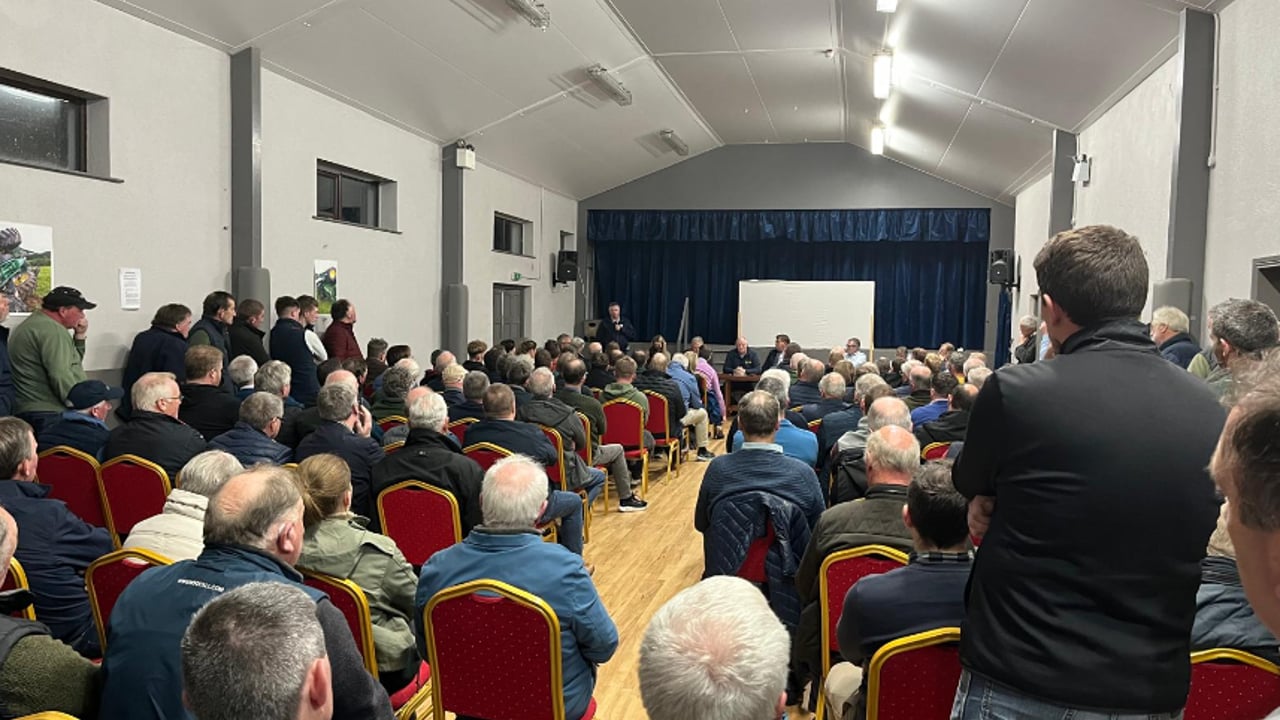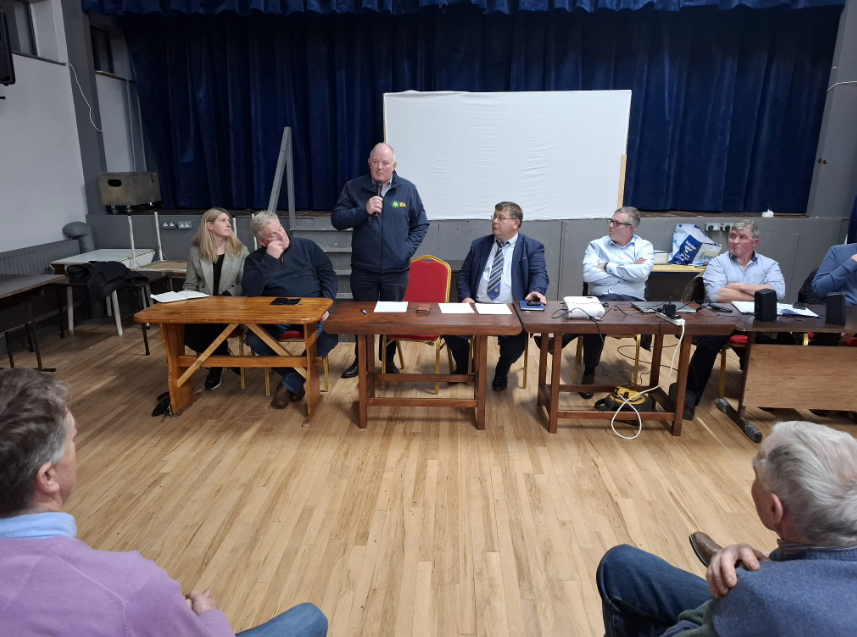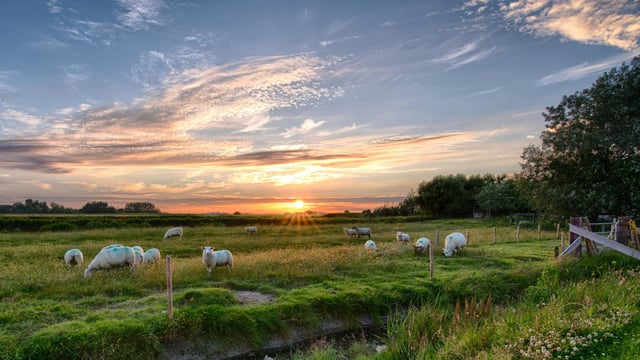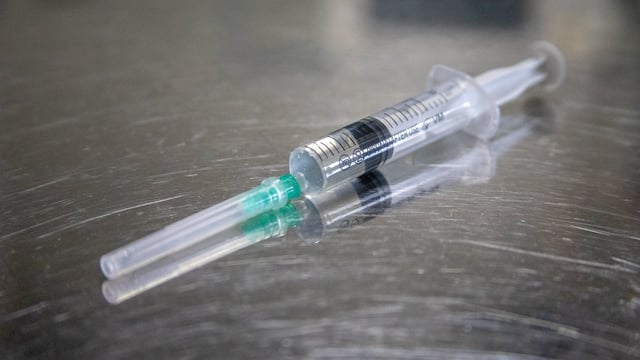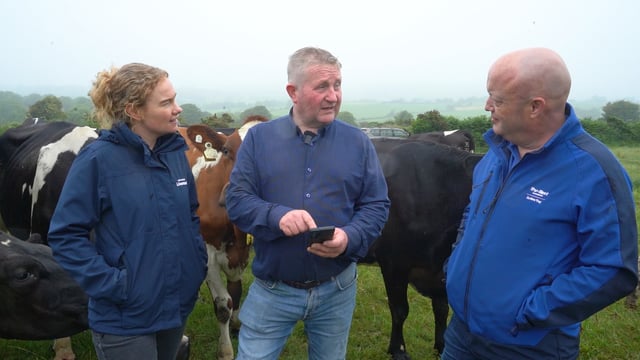Farmer petition opposing splash plate ban to be sent to minister
Around 450 farmers in Co. Tipperary have signed a petition calling on the government to scrap the splash plate ban which is being extended from next year.
From January 1, 2025, more farmers will be prohibited from using splash plates to spread slurry on their farms under the Good Agricultural Practice for Protection of Waters Regulations.
The purpose of these regulations is to give effect to Ireland’s Nitrates Action Programme (NAP) which aims to protect water against pollution caused by nitrates from agricultural sources.
This change means that low emission slurry spreading equipment (LESS) must be used for the application of slurry on farms with stocking rates of 100kg of nitrogen per hectare from grazing livestock manure or above prior to export of livestock manure from the holding from January 1, 2025.
However, farmers who attended a packed meeting held by the Irish Farmers' Association (IFA) in Upperchurch, Co. Tipperary last night (Tuesday, October 22) raised major concerns about the ban.
They believe that enforcing the use of heavier LESS equipment poses a health and safety risk when it comes to spreading slurry on hilly areas.
Speaking to Agriland following the meeting, Tipperary North IFA chair Baden Powell said that they are opposed to the ban on health and safety, economic and environmental grounds.
He said that LESS equipment will not work when it comes to the slopes and the foothills in the north Tipperary region and could put the safety of farmers at risk.
Powell pointed to the additional expense facing farmers if they have to invest in this equipment.
He added that the ban could result in more slurry being spread by contractors on flatter fields on farms which could pose an environmental risk to water quality in the area.
The meeting, which was addressed by IFA president Francie Gorman, heard several alternative solutions which could be used in place of the splash plate ban.
These included asking the Department of Agriculture, Food and the Marine (DAFM) to approve the Moscha swivel plate as LESS equipment, as has been done in parts of Germany.
The meeting also heard from farmers who had been using additives to reduce ammonia emissions from slurry.
A petition calling for the splash plate ban to be scrapped collected around 450 signatures at the meeting.
Powell said that the petition and the possible alternatives discussed on the night will now be sent to Minister of State with responsibility for farm safety, Martin Heydon.
The IFA chair added that the ban is "not workable in the hills" and "has to be halted" in the lifetime of the current government.
"Nobody thought of the impact [of the ban] on high ground, nobody thought of health and safety," he said.
Last week, Tánaiste Micheál Martin said he would raise the health and safety concerns on hilly ground in relation to the use of low-emission slurry spreading (LESS) equipment with Minister for Agriculture, Food and the Marine Charlie McConalogue.
Independent TD for Tipperary, Michael Lowry, told the Tánaiste that he had been contacted by farmers in north Tipperary who had “serious reservations” about the dangers involved in the use of LESS equipment.
Deputy Lowry told the Dáil that the "blanket ban on splash plates will lead to greater health and safety risks for farmers spreading slurry...on the slopes of north Tipperary".
He said while LESS equipment may be doing excellent work on low-level ground and serving the intended environmental purpose the “same tractor and tank are totally unsuitable for hillside land”.
“Rather than a blanket implementation, could we agree on a compromise solution to address the problems of hillside farmers?” he asked.

